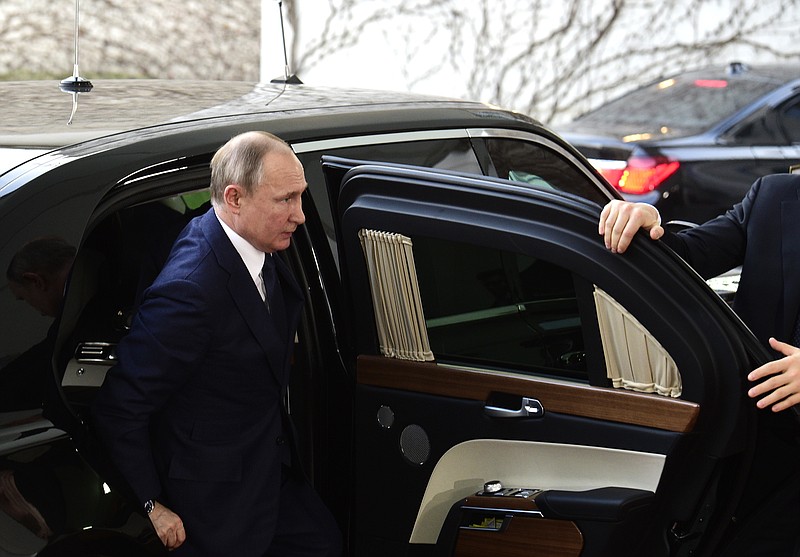WASHINGTON (AP) - A whistleblower's allegation that he was pressured to suppress intelligence about Russian election interference is the latest in a series of similar accounts involving former Trump administration officials, raising concerns the White House risks undercutting efforts to stop such intrusions if it plays down the seriousness of the problem.
There is no question the administration has taken actions to counter Russian interference, including sanctions and criminal charges Thursday designed to call out foreign influence campaigns aimed at American voters. However, Trump's resistance to embracing the gravity of the threat could leave the administration without a consistent voice of deterrence at the top of the government heading into an election U.S. officials said is again being targeted by Russia.
Russian President Vladimir Putin "is not deterred," said Connecticut Rep. Jim Himes, a Democratic member of the House Intelligence Committee. Himes said Putin feels "empowered, probably inoculated in the U.S. because of the president's behavior."
Brian Murphy, the former top intelligence official at the Department of Homeland Security, alleges in the complaint made public Wednesday that he was instructed to hold back intelligence on Russian interference because it "made the president look bad." That follows reports that Trump berated his then-intelligence director after a congressional briefing about Moscow's interference, and the president sought the firing of another official who told Congress he supported intelligence agencies' assessment that Russia had interfered in 2016 with a preference for Trump.
The department denied Murphy's allegation, and the White House issued a statement describing instances in which it said the president had taken action against Russia.
"This president has been resolute that any foreign adversary seeking to disrupt our elections will face tremendous consequences," White House spokeswoman Sarah Matthews said.
Senior Trump administration officials have been eager to focus more on China in discussing election interference, asserting Beijing is the more potent danger. Though career intelligence officials said China is a major espionage concern, there is also bipartisan consensus, including in a Republican-led Senate intelligence committee report, that Russia directly interfered in 2016 with the goal of helping Trump defeat Democrat Hillary Clinton. This year, intelligence officials said, Russia is working to denigrate Democratic nominee Joe Biden.
Murphy is not alone in alleging he felt stymied from raising the Russia threat head-on.
Miles Taylor, as chief of staff to former Homeland Security Secretary Kirstjen Nielsen, participated in high-level administration meetings and has in recent weeks publicly conveyed his concerns about Trump's leadership. In an interview, Taylor said Nielsen had to create a "shadow" National Security Council to deal with the issue because she felt the president's own team had not convened enough meetings to coordinate a response.
Taylor said Trump president once tried to have the Homeland Security Department's then-intelligence chief fired after hearing the official had told lawmakers he agreed with the assessment of Russian interference during the 2016 election.
"The president himself has threatened to fire multiple individuals in the administration for even publicly supporting the intelligence community assessment on Russia, and that had a direct and chilling effort on the ability of key Cabinet secretaries to get out and do what they needed to do to thwart foreign interference in our democracy," Taylor said.
Trump's stance on Russian interference, including publicly questioning intelligence agencies' assessment at a Helsinki news conference with Putin, has colored his relationship with spy chiefs.
Last February, Trump erupted after learning of a congressional briefing involving Russian interference, a senior administration official has said, and berated the then-acting director of national intelligence, Joseph Maguire.
In arguing Trump has been tough on Russia, the White House pointed to actions including the closure of Russian consulates on the West Coast, the expulsion of dozens of Russian agents from the U.S., sanctions on hundreds of targets, the U.S. suspension of a decades-old nuclear arms treaty and millions of dollars in election-related funding.

